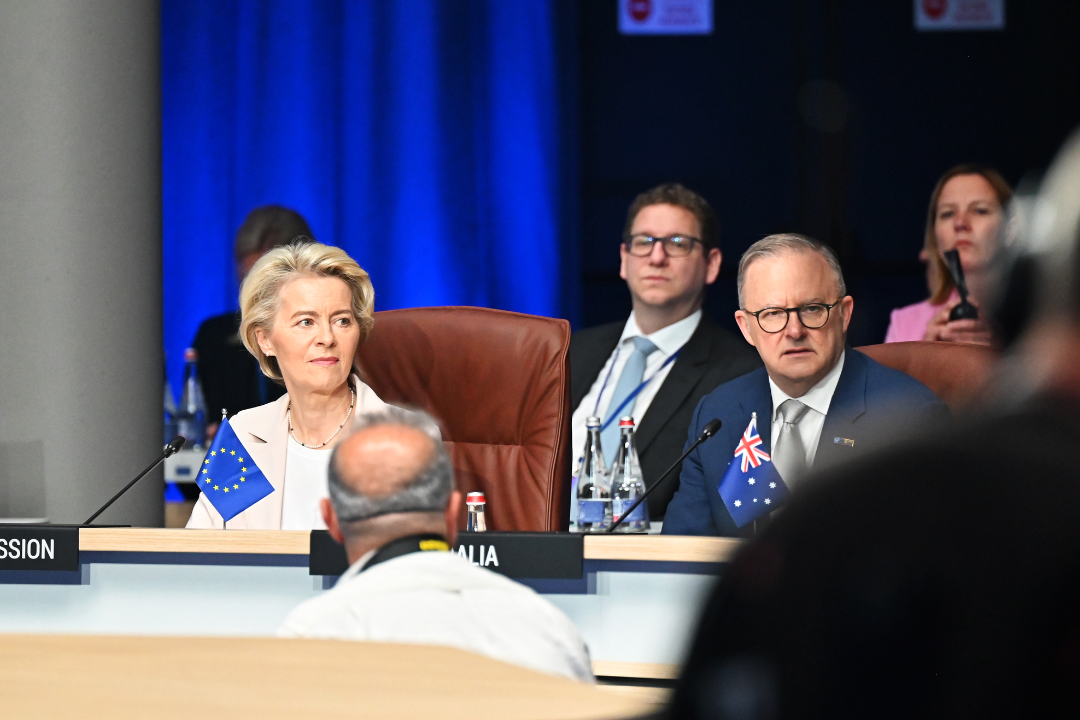

Fresh off a knockout election win, Prime Minister Anthony Albanese is hard at work negotiating better deals for Australian goods overseas. According to new reporting, everything is on the table when it comes to the trade negotiations, including an axe of the notorious luxury car tax.
The LCT celebrates its 25th birthday this year after being brought in by the Howard-era government way back at the turn of the century. It was revamped along the way by the Rudd government in 2008.
It’s a 33% tariff paid by Aussies on vehicles made overseas that were imported into Australia and sold for more than $80,567 (or $91,387 for so-called ‘fuel efficient vehicles’).
In both 2000 and 2008 when the tax debuted and was refreshed, the idea was simple. Dissuade Aussies from buying BMW and Mercedes vehicles by making them more expensive to purchase and instead direct them to locally-made Holdens and Fords. Classic tariff tactics, there.
But in 2017, the last Australian-made Holden Commodore rolled out of its Victorian plant and spelled the end of locally-made vehicles, thus rendering the LCT a solution looking for a problem. However, the tax has stuck around since then, much to the chagrin of MPs and motorists everywhere.
The Federal Government seems more than happy to keep the LCT despite the death of local manufacturing. Probably because it’s actually a handsome money-maker that nets them over a billion dollars a year in revenue.
So what would tempt PM Albanese to part with over a billion dollars a year?
As the returned PM gets back to work on the business of the nation, he’s on a grand tour to drum up better deals for Aussie exporters.
This includes regular discussions with Indian Prime Minister Narendra Modi, and open discussions with the European Union. The EU has reportedly signalled that it's open to better trade deals with Australia, but wants something in return first.
A source has reported to News Limited that Albanese wouldn’t drop the LCT arbitrarily, and would want better deals for our agriculture on the continent in return.
The benefits of lower tariffs and taxes in Australia are obvious for Europe, with the car industry revving its collective engine at the idea of challenging China's rapidly expanding fleet of electric vehicles currently taking to Aussie roads.
Improving deals for Australian agriculture isn't new for Albanese, either. Back in 2022 when he first took office, wrote in an op-ed that "there is great potential for our farmers to increase their exports of bulk commodities to a broader array of trading partners". At the time, it seemed he was talking about working to lift the export ban to China and defrosting our relationship with our neighbours. In his new term, it seems the names have changed but the goals remain the same.
It's a lofty goal to aim for, too: Australian farmers net over $6 billion a year exporting our agriculture into Europe alone, making the $1.2 billion scored via the local Luxury Car Tax seem like the coins you find in the couch by comparison. It's worth giving up for Australia's economy, too. Any increase in the output of the so-called Australian farm gate to Europe brings with it a significant revenue upside in the form of tax revenue from new jobs created and higher company profits (provided margins don't decline for exporters)
It’s a game of political wait-and-see as negotiations reportedly continue.